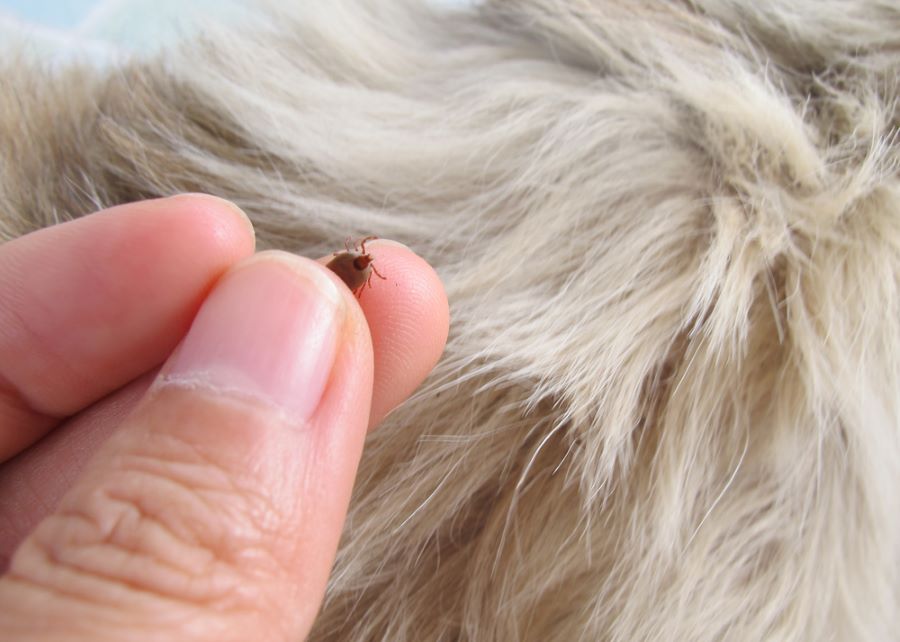The revelation of a national tick antiserum shortage has been confirmed.
Veterinarians are being urged to conserve remaining antidotes to help preserve stock and treat as many affected dogs as possible.
This means if your furry friend gets a tick and isn’t on a preventive medication, it will now be even more difficult for your vet to currently treat.
The antiserum shortage is due to the increase in tick activity and “particularly bad tick season” across the country.
Maleny Vet was the first to advise customers of the national shortage, posting on social media: “With the current unavailability of tick antiserum nationally, it is now more important than ever to ensure your pets tick prevention is up to date.”
“With the severity of tick numbers in our region right now, daily checks of your pet is also highly recommended. There is no shortage of tick prevention products, we have lots in stock,” they posted.
READ MORE: Lethal tick disease spreads into Qld for the first time.
Maroochydore Vet Surgery’s Dr Belinda Gotley said the Maroochydore region was not a high tick area, but that “clusters” were definitely hitting other areas of the Sunshine Coast.
“There is a bigger demand because the tick antiserum is made in dogs, it’s not like it’s like it’s made in a factory and you can just ramp up production,” Dr Gotley said.
“Because it’s been a particularly bad tick year so far and being so many of them, manufacturers just can’t keep up with the demand. We currently have enough antiserum left for our low level of cases.”

Dr Gotley was still urging clients to ensure their pets were on a preventative.
“Because with the shortage, we don’t want to have to treat them,” Dr Gotley said.
“Make sure you are using a good product because some of the older products don’t work as particularly well as the newer products. If dogs have been in bushy areas or where there is wildlife, triple check them for ticks.”
Kenilworth Vet recently advised Sunshine Coast News they were down to two dosages of anti-serum left in their medicine cabinet – with tick paralysis patients coming in daily – which made it a concerning situation.
Vets from Maleny, Kenilworth and Buderim veterinary clinics were unavailable for comment by the time of publication.
UQ Vets and Small Animal Hospital Board Certified Veterinary Criticalist Dr Katie Nash echoed the strong emphasis on prevention for dogs and cats during the shortage.
“Unfortunately, we are seeing high numbers of tick cases this year, but the good news is there are easy at home steps you can take to keep your pets from experiencing life-threating tick envenomation,” Dr Nash said.
She urged pet owners to triple check their pet’s current preventive now to make sure it also covers paralysis ticks.
“This means using highly effective tick preventatives year-round as well as thorough daily tick searches,” she said.
“We recommend using isoxazoline products such as bravecto and nexgard (the latter is for dogs only). Keep coats clipped short to help with searches, especially during warmer months when ticks are most prevalent.
She urged pet owners to keep the tick for identification.
“Even if you don’t find a tick, call your vet straight away if your pet is wobbly, has difficulty getting up, has a change in breathing or voice or is gagging or vomiting,” she said.
“Many 24 hour hospitals are already recommending using more conservative doses of antiserum to help preserve stock and treat as many dogs as possible.
“If we run out then animals that are severely affected will still need aggressive care but will have a much lower chance of survival. It is really important to check the label closely and make sure you give the right dose for your animal, at the recommended frequency for prevention of paralysis ticks.”
Sunshine Coast News reached out to tick antiserum supplier, Provet, about how long the shortage is expected to last, but they had not responded by the time of publication.
SUBSCRIBE here now for our FREE news feed, direct to your inbox daily!





